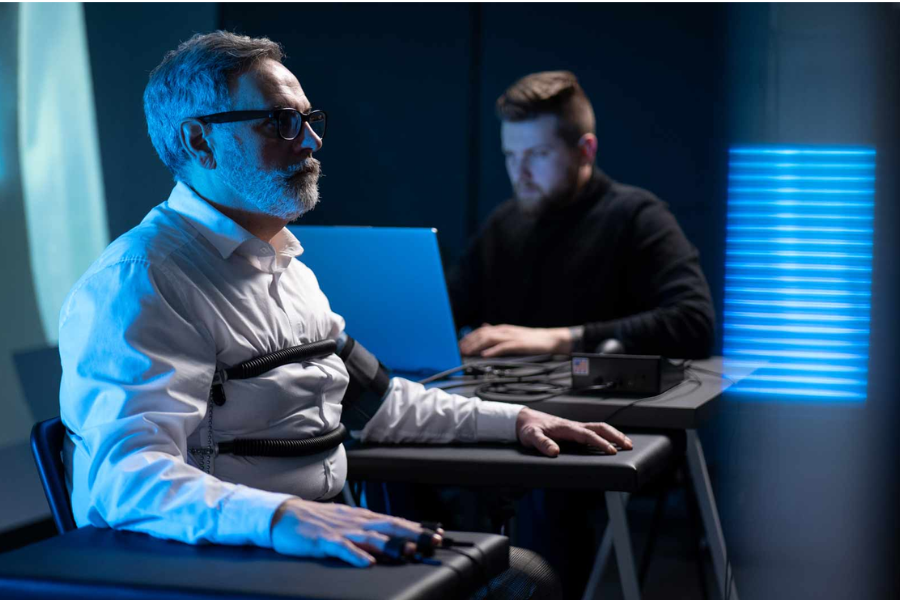Lie Detector Test Atlanta: An In-Depth Look at Polygraph Testing in the City
Lie detector tests, formally known as polygraph tests, are widely used in various contexts to assess truthfulness and detect deception. In Atlanta, polygraph testing has found extensive use in fields such as law enforcement, criminal investigations, employment screenings, and private matters. Despite controversies surrounding its accuracy and reliability, the lie detector test remains a valuable tool for those seeking to verify truth in critical situations. This article will explore the role of lie detector tests in Atlanta, discussing how they work, their applications in different fields, the legal and ethical considerations involved, and what to look for when choosing a polygraph examiner in the city.
What is a Lie Detector Test?
A lie detector test atlanta measures physiological responses that may indicate deception. These physiological indicators include heart rate, blood pressure, respiration, and skin conductivity (sweating), which are recorded while the subject answers a series of questions. The underlying principle is that when someone lies, the body experiences stress, which can cause involuntary physiological changes. By comparing the subject’s responses to both control questions (baseline questions) and relevant questions (directly related to the topic being investigated), the polygraph examiner can assess whether the person is being truthful.
The polygraph machine itself consists of several components, including a blood pressure cuff, sensors for measuring skin conductivity, and pneumograph tubes that measure breathing patterns. These are attached to the subject’s body, and the polygraph records data throughout the test. A trained examiner analyzes the recorded data, looking for signs of physiological arousal that may indicate the subject is being deceptive.
While polygraph tests are not 100% accurate, their effectiveness improves when administered by a skilled and experienced examiner. The results of a polygraph test are typically used as an investigative tool rather than conclusive evidence, helping to guide further inquiries or clarify doubts in an investigation.
How Lie Detector Tests are Used in Atlanta
Law Enforcement and Criminal Investigations
In Atlanta, law enforcement agencies frequently utilize polygraph tests in criminal investigations. Detectives and investigators often use polygraphs to assess suspects, witnesses, and even victims, helping to clarify conflicting statements or verify the reliability of testimonies. While polygraph results are generally inadmissible in court due to concerns about their reliability, they are still valuable tools for narrowing down suspects and guiding the investigation process. For instance, a polygraph test can help investigators determine whether a suspect’s statement aligns with the physical evidence or if further questioning is needed.
Police departments and investigative units in Atlanta also use lie detector tests during pre-employment screenings for new hires. This is particularly important for jobs that require a high degree of trust and integrity, such as police officers, detectives, or other law enforcement personnel. A polygraph test can help ensure that candidates for these positions do not have a history of criminal behavior, dishonesty, or other problematic conduct that could compromise their ability to serve the public faithfully.
Private Sector and Employment Screenings
In addition to law enforcement, lie detector tests in Atlanta are commonly used in the private sector for employment screening, particularly in industries where security and trustworthiness are paramount. Companies that operate in sectors like security services, financial services, or those handling sensitive or confidential information may use polygraph testing as part of their hiring process to verify the honesty of potential employees.
However, the use of polygraphs in employment settings is restricted by federal law, specifically the Employee Polygraph Protection Act (EPPA) of 1988. This law prohibits most private employers from using polygraph tests for pre-employment screening or during the course of employment, with certain exceptions. For instance, polygraph testing may be allowed for companies in security, pharmaceuticals, or other industries where employee misconduct could lead to significant economic loss or breach of public safety.
Relationship and Personal Matters
Outside of the professional and legal sectors, lie detector test in Atlanta are also used in personal situations. People may seek out polygraph services to resolve disputes in personal relationships, such as issues related to trust, infidelity, or accusations of theft. For example, if one partner in a relationship suspects the other of being unfaithful, a polygraph test can be used to verify the truth and provide clarity. Although these tests should be administered carefully to avoid further strain on relationships, they can sometimes offer a way to address suspicions and restore trust.
Polygraph tests may also be used in family matters, such as verifying statements in disputes over wills, child custody cases, or family financial issues. In these cases, the polygraph is often used to mediate and resolve conflicts before they escalate into more serious legal disputes.
Legal and Ethical Considerations of Lie Detector Tests in Atlanta
The legal landscape surrounding polygraph testing in Atlanta is shaped by both state and federal regulations. While Georgia allows polygraph tests to be administered by licensed professionals, there are strict guidelines in place to ensure ethical and legal compliance. First and foremost, individuals must give their written consent before undergoing a lie detector test. This ensures that the test is voluntary and that the person being tested fully understands the procedure.
Additionally, Georgia law regulates the licensing and certification of polygraph examiners. All polygraph examiners in Atlanta must be licensed by the Georgia Board of Polygraph Examiners, which sets standards for the qualifications and training necessary to conduct polygraph tests. Examiners must complete rigorous training and certification programs, ensuring they are proficient in administering tests and interpreting the results accurately.
It’s important to note that, in Georgia, polygraph results are generally not admissible in court unless both parties in a legal case agree to their submission as evidence. This limitation stems from concerns over the reliability of polygraph results, as they are not considered foolproof. While polygraph tests can be highly accurate when administered correctly, factors like stress, nervousness, or certain medical conditions can influence the results, leading to false positives or false negatives. As such, courts tend to view polygraph results as an investigative tool rather than definitive proof of guilt or innocence.
Choosing a Polygraph Examiner in Atlanta
If you are considering a lie detector test in Atlanta, it is essential to choose a licensed and experienced polygraph examiner. Not all examiners have the same level of training or expertise, and the quality of the test results can depend heavily on the skills of the examiner. A good polygraph examiner will follow strict protocols for administering the test, ensuring the questions are fair and the environment is conducive to accurate readings.
When selecting an examiner, make sure to verify their credentials. As mentioned earlier, polygraph examiners in Georgia must be licensed by the state, so it’s important to check that the examiner you choose meets the necessary qualifications. You can ask about their experience in administering polygraph tests for similar cases, as well as their success rate in providing accurate results.
You should also inquire about the testing process itself. A reputable examiner will take the time to explain how the polygraph test works, the types of questions that will be asked, and how the results are interpreted. They should also provide clear information on the costs involved, as polygraph testing can be a significant investment, particularly for private cases.
The Limitations and Controversies of Polygraph Testing
Despite its widespread use, the polygraph test remains a subject of controversy, particularly when it comes to questions of accuracy and ethical use. While polygraph advocates claim that the test is highly effective when administered properly, critics argue that polygraph results can be misleading. Factors such as the subject’s psychological state, underlying medical conditions, or even attempts to “beat” the test by controlling physiological responses can impact the outcome.
Furthermore, while polygraph tests are considered valuable tools in investigations, they are not infallible. The potential for false positives (indicating deception when the subject is telling the truth) and false negatives (indicating truthfulness when the subject is lying) means that the results must be interpreted cautiously. As such, polygraph results should be used as part of a broader investigative process, rather than as standalone evidence.
Conclusion
In Atlanta, lie detector tests continue to be a valuable resource for law enforcement, employers, and individuals seeking truth in a wide variety of situations. While polygraph tests can provide critical insights, they should always be administered by a trained and licensed examiner to ensure accuracy and ethical compliance. Whether used in criminal investigations, employment screenings, or personal disputes, polygraph testing can help verify statements and uncover deception, provided its limitations are fully understood. As Atlanta continues to evolve, the use of lie detector tests will likely remain an important tool in truth-seeking endeavors across multiple sectors.






